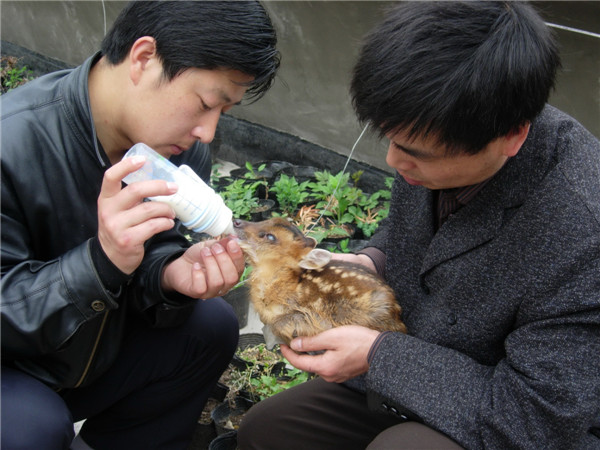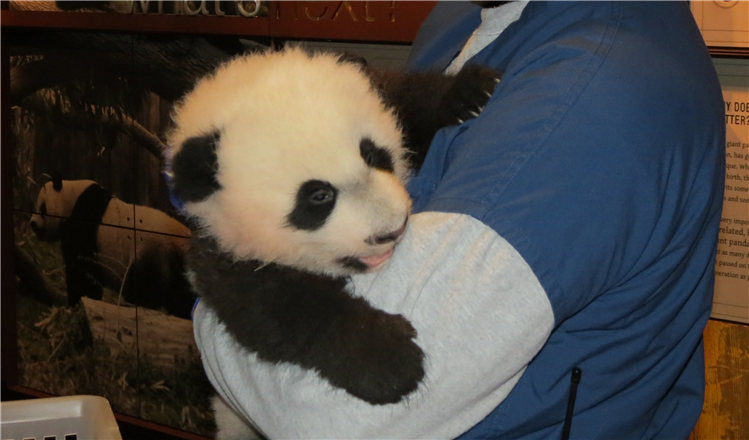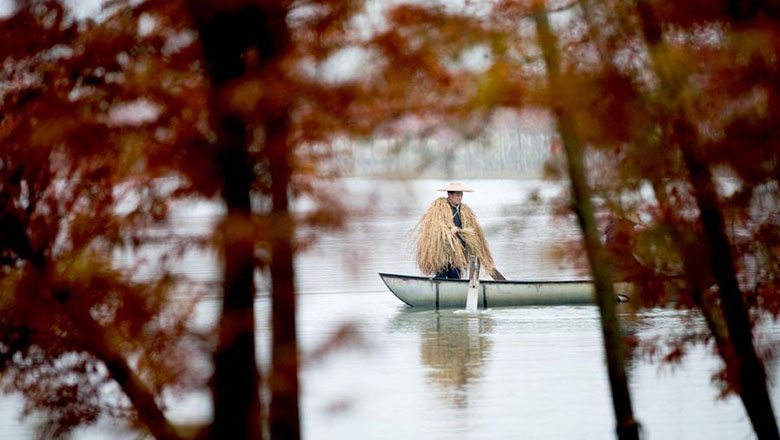Snub-nosed monkeys better with more trees
Updated: 2015-11-18 08:14
By Sun Ye(China Daily)
|
||||||||
 |
|
Members from the research institute take care of a Himalayan goral cub they saved. [Photo provided to China Daily] |
"Most of the villagers used to cut and sell forest wood," Yang Minghua, a former timber worker who now owns a guest-house, says. "No one wanted to change the trade at first. But we had unexpected great returns from the change."
He earns 200,000 yuan ($31,000) a year now, almost a 10-fold growth in revenue from his wood-cutting business earlier.
The district also promotes the idea of environmental protection to them. Now Yang would market his lodging for "it's all eco-friendly."
More than 2,000 families have moved out from the forest in the last two decades like Yang has. Forest volume has expanded by 200,000 cubic meters per year. Now, 96 percent of Shennongjia's conservation area is covered in green, according to official statistics.
As for the monkeys, their population grew to 1,280 in the 2005 head count. That number is expected to increase even more when the next head count is tallied next year.
More scientific monitoring that tracks the creatures' lifestyle and health is done every day, with the help of infrared cameras that dot the mountain. A new science lab specifically studies the behavior and needs of the rare monkeys.
Moreover, in one of their protection bases where some 80 monkeys live (in families and one guarding the group much like humans), 15 infants were born this year. All survived.
"It is the happiest thing for us," says the research institute's Yang. "It is the best news in 10 years."
More will be done for the monkeys as well as the general Shennongjia environment in the future, as a database on all the district's flora and fauna is being prepared. Experts from the Chinese Academy of Sciences, the Academy of Forestry Sciences and other institutes are also participating in the endeavor.
"We hope to establish an ID system for plants and animals here," Deng Tao, a participating expert from CAS says. "Shennongjia is a valuable eco-system that houses almost all important species in Asia."
"And when we know the place better, we can better protect the entire environment," he says.

 Panda cub Bei Bei to make public debut on Jan 16
Panda cub Bei Bei to make public debut on Jan 16
 Landmarks of Paris reopen for tourists after terrorist attacks
Landmarks of Paris reopen for tourists after terrorist attacks
 French warplanes strike Islamic State Syria bastion
French warplanes strike Islamic State Syria bastion
 High-tech fair gears up in Shenzhen
High-tech fair gears up in Shenzhen
 Biggest wild Chinese sturgeon seeks treatment in Beijing
Biggest wild Chinese sturgeon seeks treatment in Beijing
 Tranquility in the ‘Water Forest’
Tranquility in the ‘Water Forest’
 Xi, Putin meet at G20 summit, renewing pledges on cooperation
Xi, Putin meet at G20 summit, renewing pledges on cooperation
 Skimming the surface
Skimming the surface
Most Viewed
Editor's Picks

|

|

|

|

|

|
Today's Top News
Chinese president arrives in Turkey for G20 summit
Islamic State claims responsibility for Paris attacks
Obama, Netanyahu at White House seek to mend US-Israel ties
China, not Canada, is top US trade partner
Tu first Chinese to win Nobel Prize in Medicine
Huntsman says Sino-US relationship needs common goals
Xi pledges $2 billion to help developing countries
Young people from US look forward to Xi's state visit: Survey
US Weekly

|

|







